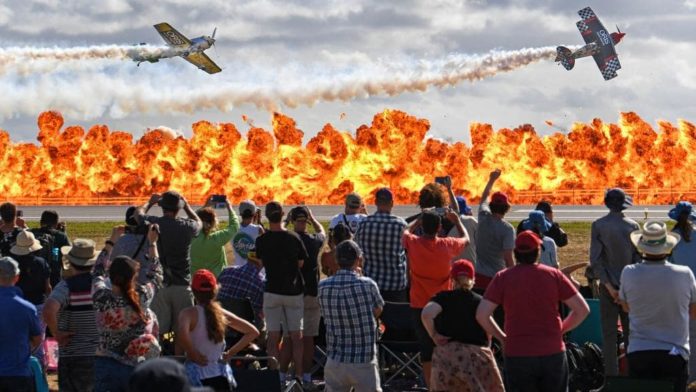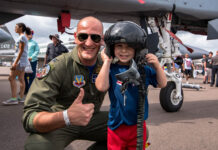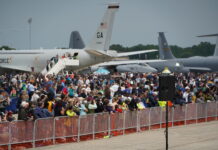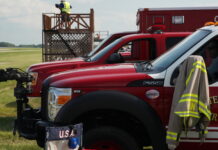The 50th ICAS Convention was a special milestone for the organization, and for me, as well. While the air show industry celebrated 50 years of collaboration and unity at the convention, I was participating in my tenth ICAS Convention. I recognize that I have been privileged to be in this business for just a fraction of the time of many ICAS members. But I also recall the words of Bob Hoover, who said: “We are all temporary caretakers and stewards of the flame that is the air show industry, which is, after all, the most intimate experience that most of the public will ever have with general aviation.”
Recognizing that my contributions to the industry are small in comparison to the greater tapestry woven by our air show community during the last century, it is nevertheless appropriate to use a milestone such as this to reflect on the past for the purpose of being more effective in the future.
So, what have I learned over the last decade?
1. Looking back is just as important as looking forward.
This may seem fairly obvious based on my introductory comments, but the most powerful changes that have been made in the industry have been the result of pensive reflection on recent events. Debriefing is a common enough term in aviation, and nearly everyone uses them to some extent. Many performers conduct a post-flight debrief with their team, colleagues, or crew to fine tune their routine. Air show organizers conduct post-show debriefs and hot washes to identify areas in need of improvement for the next day or year. Even here at headquarters, we conduct an annual post-convention debrief to modify and improve the operation of the convention from year to year. A debrief is an incredibly powerful tool that can profoundly improve all areas of operation in the business.
2. Seek out and act upon the input of others.
I hesitate to use cliché truisms, but stepping out of our comfort zone to invite critique is often the sign of a successful and innovative business. Surveys, market research, data analysis, and peer review provide insight into every facet of our business, and while that insight can be difficult to obtain, making the effort to get it is a common trait of organizations that exhibit success. Do you ask your customers what they like? Do you ask your customers what they do not like? Do you act on that feedback? Do you ask your peers what they do successfully? Can you adopt any aspects of other successful organizations to improve your own? There are countless avenues to get input from others, and the most successful organizations do so often.
3. The best work is the result of collaboration and consensus.
I recognize fully the irony of writing these words 20 miles from Washington D.C. in 2018, but it’s a lesson I have learned well during my first decade with ICAS. The finest work that we have done as an industry was the result of sitting people down to flush out all sides of an argument, and coming to an agreement on the best way forward. One of the most difficult things to do as a professional in the association business is to get two parties that disagree to come to an agreement on a path forward. It is sometimes contentious work, but the end result of that process is most often a product that could not have been generated without collaboration. I have seen both sides of this coin. I have seen a small group fail when they insisted on pushing out new rules without consideration of dissenting voices. And I have seen others succeed when they actively sought input from those with whom they disagreed.
4. Admit mistakes early, often and genuinely.
I must confess that I learned this lesson personally, and the hard way…which has only strengthened my conviction that it is always the right course of action. Among many other things, when you admit to your failures and missteps, others are more likely to see those mistakes as honest errors or a temporary lapse in judgement. Failing to disclose or “own” your mistakes, on the other hand, is often seen as a deliberate attempt at deception or dishonesty, regardless of the intention. Whatever our position in the industry, we all answer to someone else, whether it is the FAA and Transport Canada, event organizers, the air show fans, or even just our boss. It takes true strength of character to admit a mistake, but that kind of integrity is also an indicator of a strong leader.
5. The air show industry is the most enjoyable industry in the world.
Because this lesson is so obvious, it was the first one I learned after starting with ICAS. I felt it on my very first day on the job and then continuously for a full decade. Every individual in this business enjoys being a part of it, in part because our motives are as pure as they come: a shared love of aviation. The ability to use that passion to inspire others is one of the air show community’s most important and least tangible assets.
6. Share what you know.
The only way an organization like ICAS could have made it 50 years is through sharing its knowledge openly and regularly. Sharing lessons learned has been critical to the success of the industry by helping newcomers and veterans alike avoid pitfalls experienced by others and by emulating the success of other organizations. This transfer of knowledge occurs in a myriad of ways. ICAS members have conducted or participated in over 1,500 education sessions at the ICAS Convention. The ACE Program has overseen thousands of peer-reviewed evaluations of air show performers. This very magazine, along with hundreds of digital newsletters, are an archive of knowledge that ICAS members often draw from as a resource. All of this does not include the incalculable interactions that have occurred at the convention bar or exhibit hall floor in which small ideas can snowball into revolutionary innovations. This is the most important function of our organization.
It’s a short list of lessons, but – heck – I’ve only been in my position with ICAS for ten years. I look forward to sharing a much longer list of lessons learned in 2027 when we all gather – probably in Las Vegas – to celebrate the 60th anniversary of ICAS.








